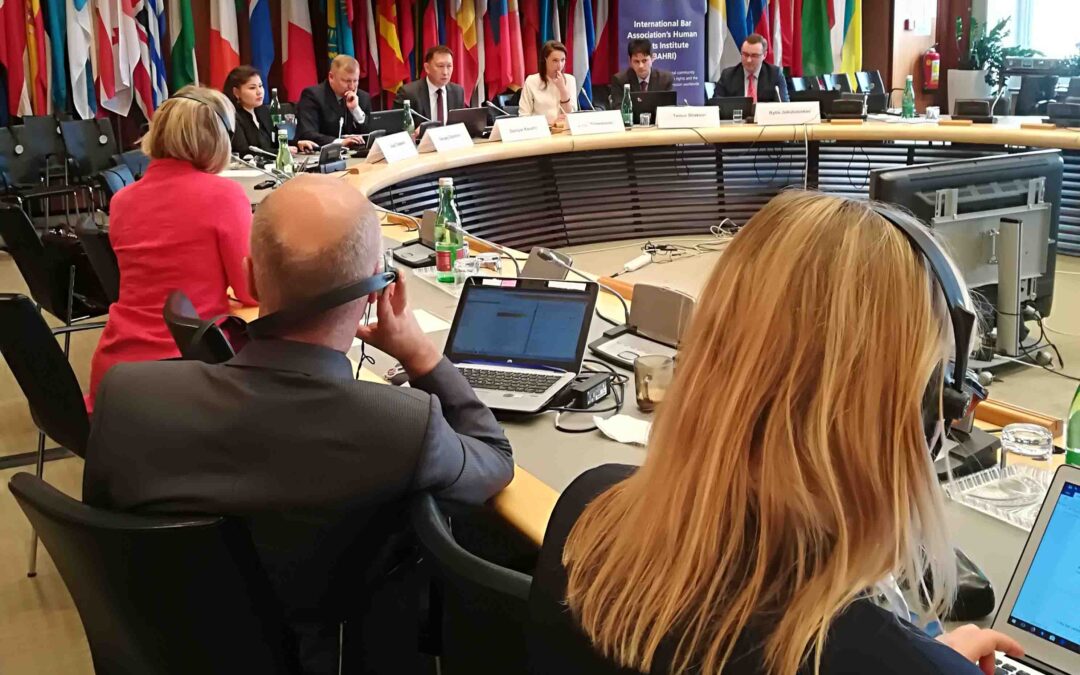
Nov 17, 2017 | News
Today, the International Bar Association’s Human Rights Institute (IBAHRI) and the ICJ held a side event in the framework of the OSCE’s Supplementary Human Dimension Meeting (SHDM) on Access to Justice in Vienna.
The event aimed to give an overview of current challenges and key organizational and procedural barriers faced by lawyers in Kazakhstan, in the light of international standards on the independence and role of lawyers.
At the event, lawyers from Kazakhstan as well as international experts discussed what guarantees should be ensured in the planned reform of the legal profession to guarantee professional autonomy and to strengthen the independence of lawyers.
Any undue interference with the independence of the current Bar Association in Kazakhstan would be contrary to international law and standards and would have a significant negative effect not only for Kazakhstan’s justice system but also for the wider Central Asia region.
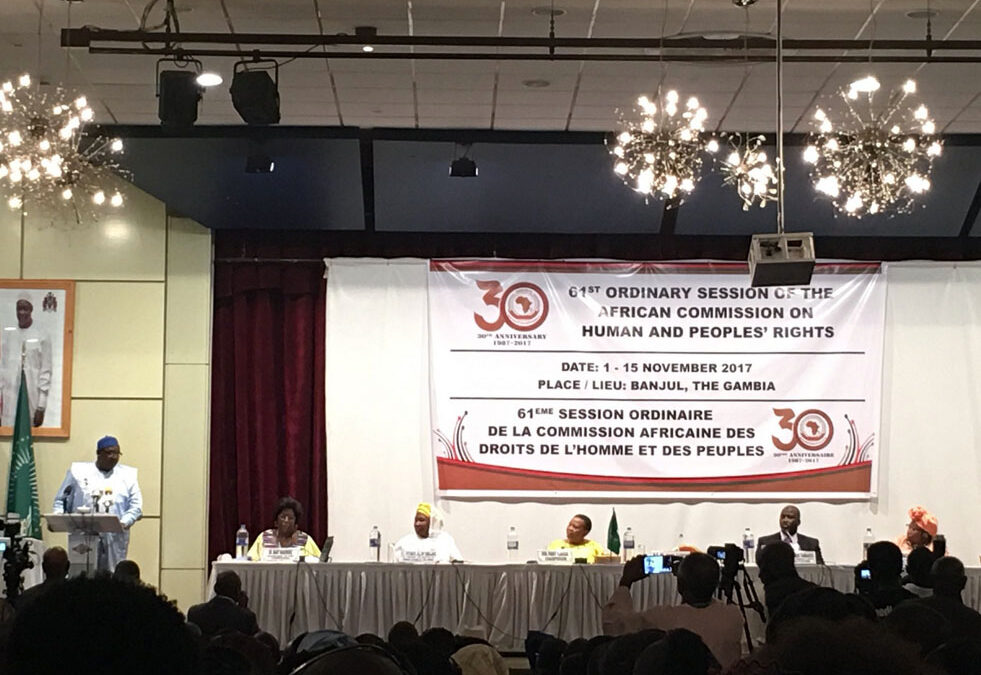
Nov 7, 2017 | Advocacy, News
The ICJ today called for the African Commission on Human and Peoples’ Rights (“African Commission”) to establish a special mechanism for the protection and promotion of the independence of judges and lawyers in Africa.
The ICJ made the call in a statement during the public session of the 61st Ordinary Session of the African Commission in Banjul.
The call comes amidst growing threats to the independence of justice in Africa.
In African Union (AU) Member states across the continent, judicial officers and legal practitioners have been targeted for violence and intimidation, or unjustified interference or sanctions.
Recent cases include Burundi, Botswana, Egypt, Lesotho, Libya, Kenya, Swaziland, Zambia, the DRC, Cameroon and Zimbabwe.
The frequency and seriousness of such incidents prompted the ICJ working with the Africa Judges and Jurists Forum to convene a round table meeting in Harare in 2016 to discuss practical steps that could be adopted to minimize the plight of jurists in distress.
The Harare meeting identified the need for a special mechanism for the protection and promotion of judicial independence in Africa, similar to the existing United Nations’ Special Rapporteur on the Independence of Judges and Lawyers.
“It is chilling when a judge is shot in Lubumbashi in the DRC, or a deputy chief justice’s security personnel and driver is shot in Nairobi, Kenya ahead of an important case, or the offices of the Law Association are besieged by militias in Lusaka, Zambia. These are real cases,” said Arnold Tsunga ICJ’s Africa Regional Director.
“An independent, impartial, competent and accountable judiciary and independent and free legal profession are pre-requisites for effective protection of human rights and entrenchment of the rule of law in Africa,” he added.
The ICJ noted that the African Commission have already set out an excellent framework of standards to guarantee independence of the judiciary and access to justice in Africa in the 2003 Principles and Guidelines on the Right to a Fair Trial and Legal Assistance in Africa.
What is needed now is to put in place machinery for their implementation.
The Commission must now to take steps towards establishing a special mechanism for the protection and promotion of judicial independence, including the appointment of a Special Rapporteur on the Independence of Judges and Lawyers, and establishing a Working Group on the Independence of Judges and Lawyers.
Contact
Arnold Tsunga, Director of ICJ’s Africa Regional Programme, t: +27716405926, e: arnold.tsunga(a)icj.org
Banjul- Independence Judges and Lawyers-Advocacy-2017-ENG (Statement in English, pdf)
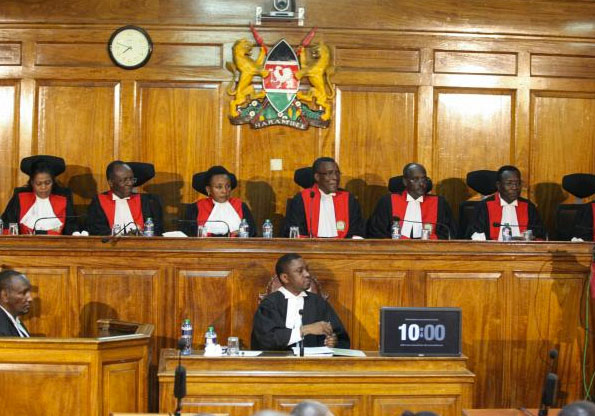
Nov 2, 2017 | News
The ICJ notes that a number of threats and intimidating statements aimed at members of the judiciary, including the Supreme Court, were made during the election campaign period in Kenya.
Now that the elections ordered by the Supreme Court after nullification of the initial elections in Kenya have been concluded, it is important for Kenyan authorities to reaffirm commitment to separation of powers and guarantee the security of judges and the independence of the judiciary in the country, the ICJ says.
On Monday, 30 October 2017, the Indepedent Electoral Boundaries Commission (IEBC) in Kenya declared President Uhuru Kenyatta as the winner of the October 26 repeat polls.
President Uhuru Kenyatta is widely reported to have been heavily critical of the Supreme Court for annulling the 8 August 2017 presidential election on a “technicality”.
It is also reported that he promised to “fix” the bench if re-elected.
The President is also reported to have said he would deal with Chief Justice Maraga, but did not however define the form of action he would take.
Similar sentiments have been attributed to Deputy President William Ruto. It’s unclear at this stage whether these statements should be dismissed as political rhetoric on the campaign trail or warrant further consideration.
However such utterances and threats on the judiciary by senior government officials may be inferred as an attempt to intimidate or unduly influence the bench.
“These threats coming from the highest authorities hinder the ability of the courts to perform their duties, which are indispensable for the rule of law and fair administration of justice in the country,” said Arnold Tsunga, ICJ’s Africa Regional Programme Director.
“Judges must be able to exercise their duties freely, independently and impartially, or else the rule of law in the country will be eroded, and with it, effective protection of the human rights of the Kenyan people,” he added.
The ICJ recalls that the UN Basic Principles on the Independence of the Judiciary provide that judges must be able to perform their professional duties “without any restrictions, improper influences, inducements, pressures, threats or interferences, direct or indirect, from any quarter or for any reason” and that governments have a responsibility to secure this guarantee.
Article 26 of the African Charter on Human and Peoples Rights also imposes an obligation on Kenya to establish an independent judiciary.
Contact
Arnold Tsunga, Director of ICJ’s Africa Regional Programme, t: +27716405926, e: arnold.tsunga(a)icj.org
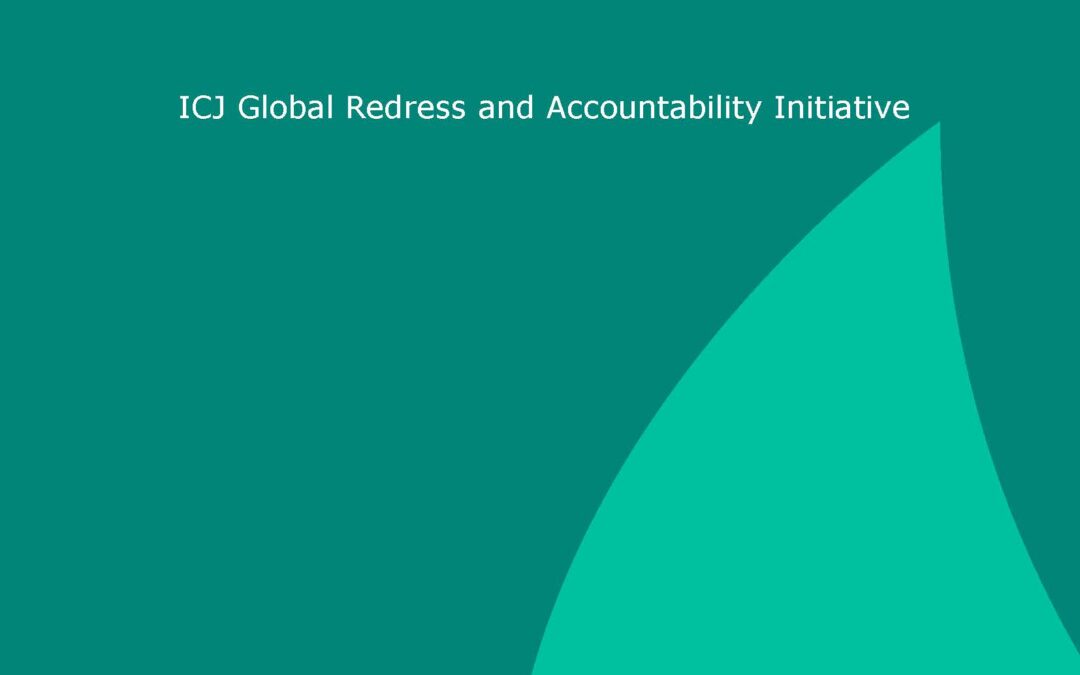
Oct 31, 2017 | News, Publications, Reports, Thematic reports
Effective measures to end impunity for crimes of torture in detention are needed to tackle the systematic recourse to torture and other ill-treatment of detainees in Tajikistan, the ICJ concluded in a report released today.
The ICJ report, Achieving Justice for Gross Human Rights Violations in Tajikistan, finds that although Tajikistan’s criminal procedure law is often in line with international law, including fair trial and other relevant guarantees, in practice it does not lead to effective protection of human rights.
The system is in practice unable to remedy or establish accountability for the serious human rights violations that occur systematically in detention, the report says.
Even where complaints of torture are made, it appears that very few lead to investigation, prosecution or conviction.
“The systematic recourse to torture and ill-treatment in detention undermines the integrity of the criminal justice system in Tajikistan, as well as notions of fairness and justice and the operation of the rule of law in the country,” said Temur Shakirov, Senior Legal Adviser at the ICJ’s Europe Regional Programme.
“Torture must always be treated as one of the most serious crimes. International human rights law requires that allegations of torture must be independently, promptly and thoroughly investigated and, where those responsible are identified, they must be brought to justice,” added Shakirov.
An effective system of prevention of torture and other ill-treatment in detention and for the provision of effective remedies and reparation for such violations is needed to tackle the systematic recourse to their use, the report finds.
The ICJ’s report identifies numerous factors that foster the widespread use of torture and other ill-treatment in Tajikistan, including:
- the lack of independence of the judiciary;
- the judges’ failure to uphold equality of arms between the defence and prosecution;
- the frequent failure by courts to inquire into allegations of torture or other ill-treatment raised by the defence;
- the tendency of courts to accept prosecution denials of such treatment without question; and
- courts’ regular failure to exclude evidence obtained by torture.
With heavy reliance by judges on self-incriminating statements made by suspects in the first hours of detention, the presumption of innocence remains to a large extent illusory, the report adds.
The report also demonstrates that a lack of guarantees for confidential lawyer-detainee meetings prevents detainees from effectively exercising their right to qualified legal assistance and to complain about ill-treatment if necessary.
“Systemic torture cannot be effectively eradicated unless lawyers are both individually and institutionally independent of the executive, are protected in carrying out their duties, and have unimpeded access to their clients in the first hours of detention, as required by international law and standards”, Shakirov said.
The report provides a comprehensive list of recommendations following a detailed analysis of applicable laws and practices in Tajikistan, including based on the findings and recommendations of different bodies of the United Nations human rights system.
Contact
Temur Shakirov, Senior Legal Adviser, Europe Programme, t: +41.22.979.3832; e: temur.shakirov(a)icj.org
Alex Conte, ICJ Global Redress and Accountability Initiative, t: +41.79.957.2733; e: alex.conte(a)icj.org
Tajikistan-GRA Baseline Study-News-Press-Release-2017-RUS (Press Release, Russian PDF)
Download
Tajikistan-GRA Baseline Study-Publications-Reports-Thematic reports-2017-ENG (full report in PDF, English)
Read also
ICJ Report ICJ Recommendations on the Independence of the Legal Profession in the Republic of Tajikistan (February 2016)
ICJ legal submission Alternative Report to the UN Human Rights Committee on the Second Periodic Report of Tajikistan under the International Covenant on Civil and Political Rights (June 2013)
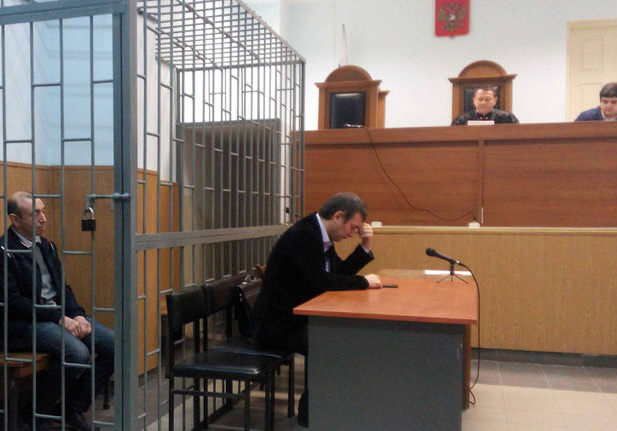
Oct 27, 2017 | News
Today, the ICJ expressed concern at the allegations of harassment of lawyer Shamil Magomedov following an acquittal of his client Sulntankhan Ibragimov, who had been accused of murder.
The allegations should be investigated and authorities must make clear to law enforcement officials that such intimidation and harassment is prohibited, the ICJ said.
Yesterday, the lawyer alleged that on 19 October, while he was in Moscow, a law enforcement officer visited his home in Dagestan and questioned his family members about his whereabouts and “why he complained so much to law enforcement bodies”.
The lawyer believes this is related to the acquittal of his client, Sulntankhan Ibragimov, in whose case a decision had been delivered three days before.
When the matter was raised in court, Prosecutor Magomed Aliyev claimed the law enforcement officer’s visit was routine.
The ICJ considers that in the circumstances, the visit to and questioning by a law enforcement officer of a lawyer’s family about his professional activities could only reasonably be understood as a form of intimidation or harassment.
International standards, such as the UN Basic Principles on the Role of Lawyers, provide that governments must ensure that lawyers “are able to perform all of their professional functions without intimidation, hindrance, harassment or improper interference” and “shall not suffer, or be threatened with, prosecution or administrative, economic or other sanctions for any action taken in accordance with recognized professional duties, standards and ethics.”
The ICJ calls on the relevant prosecutorial and law enforcement authorities to make clear to all their officials that all intimidation and harassment of lawyers, including by visiting and questioning a lawyer’s family about the lawyer’s protected professional activities, is prohibited.
Background
Shamil Magomedov, a lawyer from Dagestan, defended Sultankhan Ibragimov in a case where he was charged with the muder of Alisultan Omarov, a Greco-Roman wrestling coach, in 2015 and the murder in 2016 of Nazim Gadjiev, the leader of the “Sadval” movement.
On 16 October, the jury trial found Sultankhan Ibragimov not guilty on all accounts.
Russia-Shamil Magomedov statement-News-web stories-2017-RUS (story in Russian, PDF)









